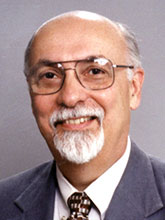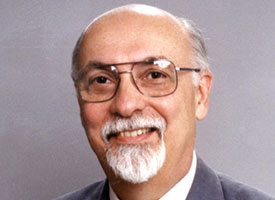With Dr. Bruce Hartung
The conversation about friends in the congregation in previous columns — see the September 2013 column and the July 2013 column — continues.

On this topic, two readers address what I think is the underlying concern: the role of a pastor and his relationship with his parishioners.
First response: The parish I serve is God’s — filled pulpit-to-pew with His forgiven, sinful people whom He references with the endearing terms of “children,” “brothers and sisters” and “friends.” I have found no better place to minister than in the midst of an audience of Lutheran sinners, myself included. I know them as God’s sheep, my brothers and sisters in Christ, and my friends. I preach to them, teach them, fellowship with them and share with them (just not about each other). They know I am a forgiven sinner called by God’s grace to lead other forgiven sinners. I’m not sure where a Lutheran pastor could find a better friend.
I wonder if my brothers think that Jesus had a few “Pharisees” as His close cohorts. After all, the disciples didn’t always listen — they deserted and betrayed Him. How could Jesus expect to speak the truth in love to those who also knew Him as a friend? He did speak the truth to his friends.
Be assured that I also have friends outside of my church family. I pray the good Lord would use me to bring them into a closer relationship with His Son. And where is such a relationship with Christ described any closer than a Lutheran congregation? More to the point, what’s missing in my parish ministry if I can’t or won’t encourage my friend(s) to be part of my church family? By God’s grace, I’ve had a couple of my “outside” friends convert to become my parish pals.
The people of the parish are not ignorant about such matters! They know their place with their pastor, i.e., where they are on the “buddy scale.” The question should not be “if the pastor should have a close friend in the congregation” but “what does a healthy friendship look like, in or out of the congregation community?”
Friendships happen. I believe that those who advise against parish friendships are speaking out of fear and that it does more to hurt than help young pastors.
Second response: I have one tip: Play their games! There was a Men’s Club in my congregation that met monthly, about 20 solid men who played “Euchre.” I attended right away, but had never played that card game. “We’ll teach you,” they said. I played cards and ate lunch with them once a month. I learned to love them and they learned to love me. And yes. My wife and I danced “in the hog trough” at their weddings, and I drank a beer with them. When it came time to butcher hogs in January, I was invited to the farm, where a good many had gathered. I learned something about that, and laughed and joked with them. And we had great sausage to eat at the parsonage!
So my advice to young pastors and their wives is this: Learn to play their games, share the fun with them, laugh with them, and when sorrow strikes, weep with them.
Thanks, my brothers. With a total of 64 years of active, ordained ministry, the two of you are speaking from on-the-ground experience. Valued, I believe, is a church worker’s capacity to walk closely with the people of parish and school.
As we join the people to whom we minister, we do so carrying our office (teacher, pastor, deaconess, DCE, DCO, etc.). But the most important aspect, in my opinion, is that our lives and their lives are joined together at the foot of the cross and in the power of the empty tomb. We weep with them, but they weep with us, as well. We walk together, bearing our burdens and joys together, as members of the body of Christ.
The Rev. Bruce M. Hartung, Ph.D., is professor of Practical Theology at Concordia Seminary, St. Louis. He can be reached at hartungb@csl.edu.
